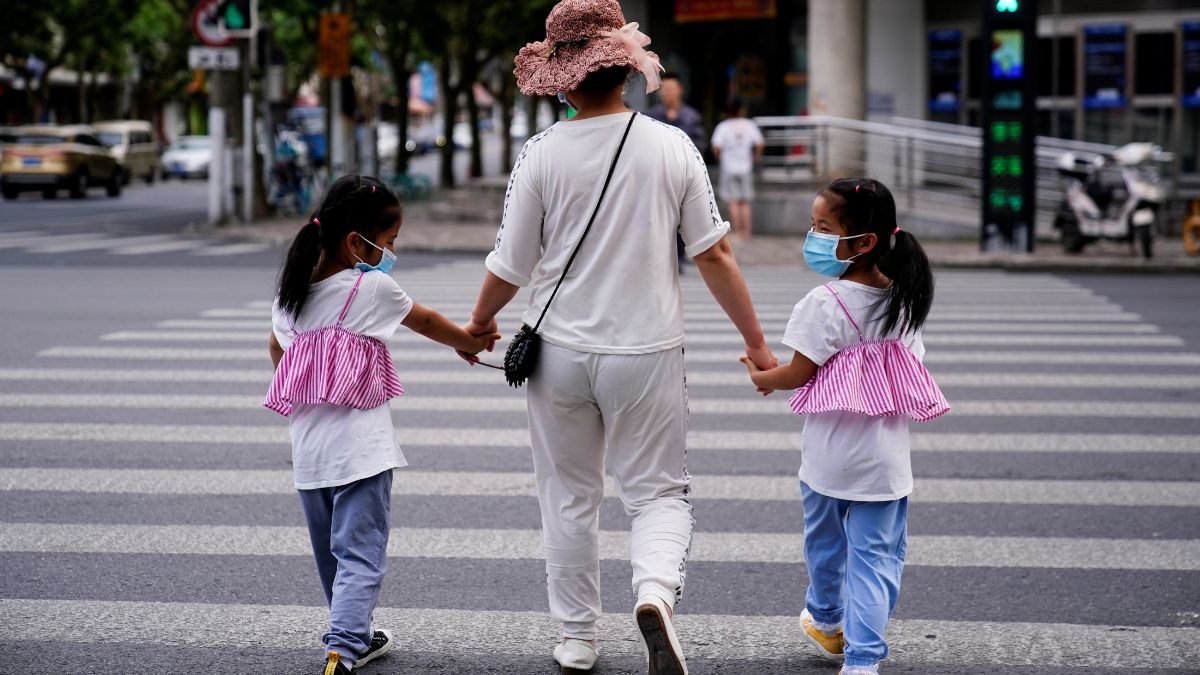In today’s fast-paced world, where both partners often juggle demanding careers, managing the responsibilities of raising children can be a significant challenge
Further, for couples who prefer not to rely on grandparents for childcare, a unique solution is gaining popularity in China: hiring “professional parents.”
According to the South China Morning Post, the country’s elite is turning to professionals or “child companions”, who are not merely tutors but dedicated caregivers who play a crucial role in nurturing both the academic and emotional development of the children they look after.
So, who are these ‘professional parents’? Let’s take a closer look at their role and impact
More than nannies
These “professional child companions” offer a level of care that goes beyond traditional nanny or tutor roles.
For instance, Song Siyu, a child companion from Chongqing, works from 5.30 pm to 8.30 pm on weekdays, assisting with homework and accompanying the child to activities like football, fencing, or swimming.
These caregivers manage also a range of other parental responsibilities—from helping with homework to attending medical appointments to addressing their emotional needs. Their work can be on-site or live-in, and their schedules vary by family.
A psychology student, who interviewed hundreds of child companions, revealed surprising details about their background.
Many of the child companions come from prestigious institutions such as Harvard, Cambridge, Tsinghua, and Peking University. They hold advanced degrees, are fluent in multiple languages, and possess skills in sports. Some of them even have expert knowledge of child psychology.
Their salaries are no less surprising. Their pay ranges from $1,400 to $4,100 per month (approximately Rs 1,17,000 to Rs 3,43,000), reported Chinese news platform Phoenix News.
Impact Shorts
More Shorts
The national TV broadcaster CCTV reports also indicate that child companions are typically hired directly from social media platforms by affluent families, bypassing the regulation and protection of agencies.
Typically, these services are sought by high-net-worth families with assets exceeding $1.4 million (Rs 11 crore). As these parents juggle demanding careers with the desire to provide top-notch care for their children, many are opting for professional child companions rather than relying on grandparents for support.
Hiring more professional mums
As per a report by Chinese newspaper, Southern Weekly, there is a high demand for female professionals, especially for families looking for someone to take on a “professional mum” role.
Shura, a ‘child companion’ told the newspaper that the reason for “professional mums” to dominate the industry, is because child-rearing is still largely viewed as a mother’s role. This perception leaves little demand for “professional dads.”
“Families who choose male child companions typically do so for their children’s athletic development, but parents often refuse because they think men might not be suitable for taking care of their girls,” she said.
However, this trend has its downsides. In some cases, children may become more emotionally attached to their companions than to their own parents.
In one such case, reported SCMP, a female companion named Susu, who is skilled in nutrition and prepares meal plans for the children in her care. She told the publication that she spent a summer with a rebellious boy whose mother, she noted, was very controlling
Susu helped the boy with his homework, took him cycling, played basketball, and they often had heart-to-heart conversations. Once, after an argument with his mother, the boy told her: “I don’t like my mum, I want you to be my mother.”
Can they replace parental companionship?
Opinions on the mainland social media platform Weibo are mixed when it comes to the role of these “professional parents,” with many believing that the term “parent” carries a deeper significance.
One user wrote, “We shouldn’t call them ‘professional’ parents. They’re just paid experts in certain areas. The word ‘parent’ has a much deeper emotional meaning.”
Pan Lan, a family education expert from central China’s Hubei province, echoed this sentiment in an interview with the SCMP. She stated, “Such child companions cannot replace true parental companionship. A child’s healthy development, both physical and mental, needs the love and support of their parents. High-quality family education is a process of mutual growth between parents and children.”
However, not everyone agrees. Another user shared a different perspective, writing, “If my child had a companion from a prestigious university, I wouldn’t worry about them falling behind others from the start.”
With inputs from agencies


)

)
)
)
)
)
)
)
)



